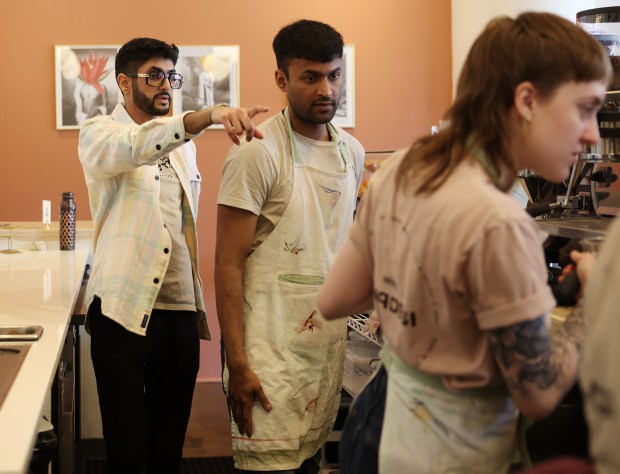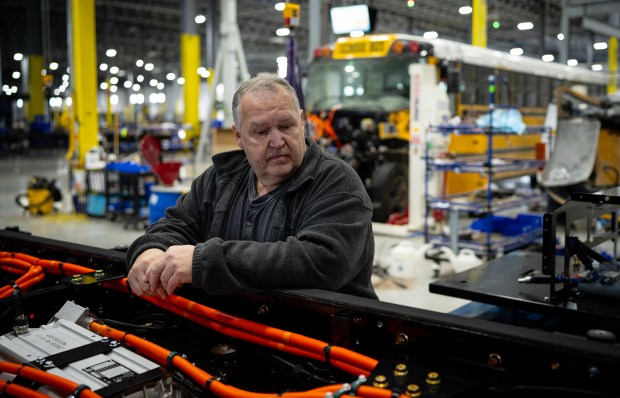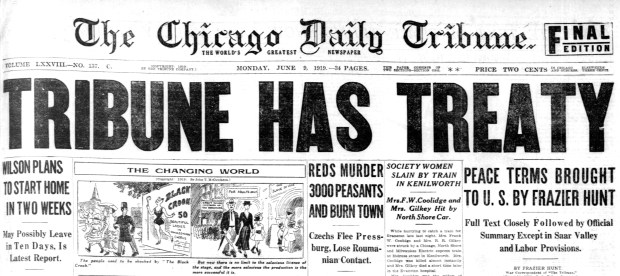The masala chai is as it should be. The familiar flavors of cardamom and ginger are an antidote to almost anything. Everyone always takes a sip before it’s sufficiently cooled and ends up burning their tongues. So did I.
Swadesi Cafe in the West Loop opened on March 26 and offers customers the sense of sipping chai at home but with a modern menu that beautifully marries French and Indian culinary styles. Pastry chef and co-founder Yash Kishinchand has received training in the French style and his co-founder, chef Sujan Sarkar, looks to reinvent Indian dishes using French techniques. The results are customer favorites: the butter chicken and samosa chaat croissants that combine popular Indian and French delicacies.
Sarkar drew inspiration for Swadesi from the coffee shops in Kolkata, India, which he said really serve tea. “I wanted to create the same space of coming together and chatting but with a modern approach.”
Food and chai are integral parts of Indian culture. It’s insulting to refuse what your host offers you. I remember accompanying my mother as she visited her aunts as a young child. While the adults talked, I stuffed myself with samosas, coffee, biscuits and if I was lucky, chocolate.
Swadesi took me instantly back to those moments from my childhood. The wicker-backed furniture and plant motif wallpaper look straight out of an Indian household. Combined with the floor-to-ceiling windows, the result is a spacious room that is cozy and warm.
For the first time since moving to America, I gave the barista my full name instead of the shortened Americanized version “Mal” that I go by now. I felt like I belonged.
Swadesi in Hindi means “of our own country” and relates to India’s independence struggle. Launched in 1905, the Swadesi movement sought to boycott British goods in favor of domestic products. For Sarkar, who also owns Michelin-starred Indienne in River North, it is easier. “The word desi is already familiar to refer to Indians so why not name this cafe Swadesi?” he said.
Kishinchand, 24, wanted Swadesi to be a space where people brought their friends and family for a cup of chai and to catch up. “My goal is to bring Indian food to those who grew up like me trying to fit into an American bubble.”
Born and raised in Kolkata, Sarkar has already established himself in the culinary business in America. In all his restaurants, he redefines traditional Indian flavors. “I need to feel a connection with India despite being across the world,” Sarkar said.
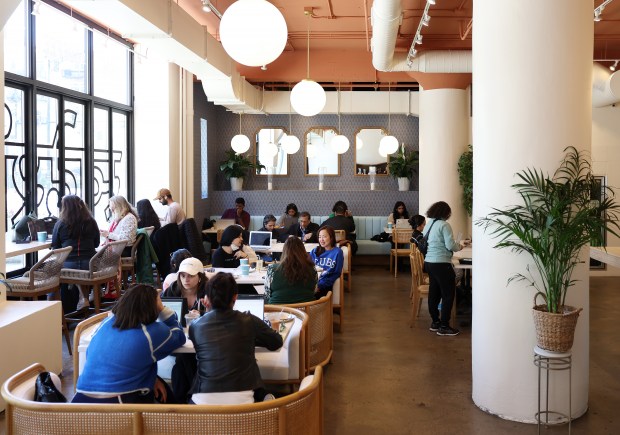
South Asians are extremely emotional about food because of the memories we have hanging around the kitchen and sneaking bites before the meal. It’s in our DNA to make sure everyone has more than enough food to eat.
Swadesi’s South Asian customers have quickly embraced the unique menu. Some of these combinations may not initially make sense, but they do on the palate. The dirty chai tiramisu plays with the classic texture of the mascarpone, but the flavors of chai are a pleasant surprise. The jaggery latte is similar to the caramel latte but has a slightly different texture. A signature drink and a personal favorite is the beautifully presented rose and orange latte. It’s Rooh Afza, a popular South Asian summer beverage usually paired with milk, in a new avatar.
“We’re not doing anything different except playing with the flavors so there’s definitely nostalgia for South Asians,” Kishinchand said.
Probably the most important question: Will South Asian parents, known to be picky about food, approve of these modern takes?
“My parents are adapting as I’m growing up and they get excited to see how American culture is adapting to Indian cuisine. This is a high-end Western coffee shop experience but with Indian flavors,” said customer Trupti Patel, 32, who is keen to bring her parents to Swadesi as they loved Indienne.
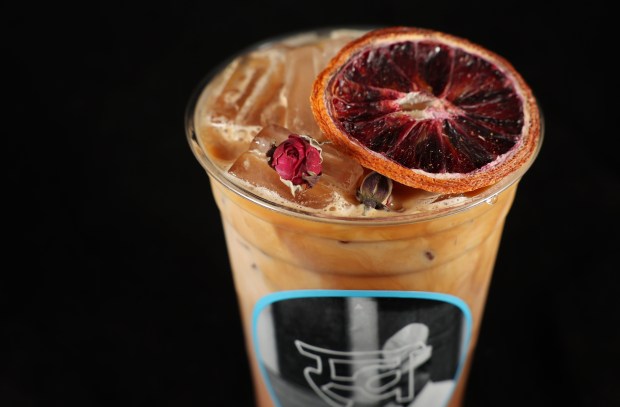
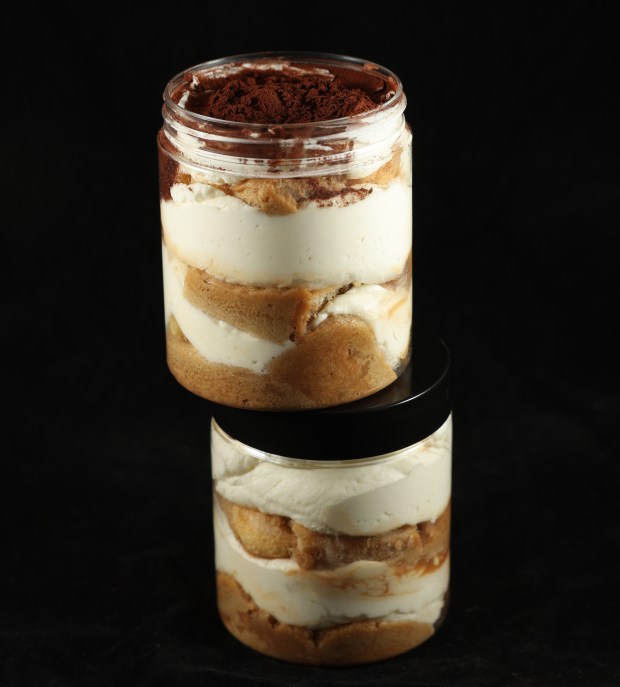
According to Kishinchand, the perception of Indian cuisine has shifted in recent years from takeout to fine dining.
“Our goal is modernizing the cuisine and creating things that people haven’t seen. We want to provide avenues to experience the cuisine despite being late to the game,” he said.
Sarkar said his restaurants in Chicago target different markets and needs. “You won’t go to Indienne every week so you might visit Swadesi or Sifr.”
While Swadesi will not become a franchise, Kishinchand and Sarkar still have plans to expand to include an evening menu, beer, wine and cocktails. “We’ll have Indian producers and Indian flavored cocktails and maybe comedy shows and pop-ups at night,” Kishinchand said. Sarkar also aims to carry shelf items like tea sourced from India.
Sarkar’s cooking stems from childhood nostalgia but he said that every trip to India inspires him further. “There is so much more available now than when I was a kid and I try to bring those changes here too,” he said.
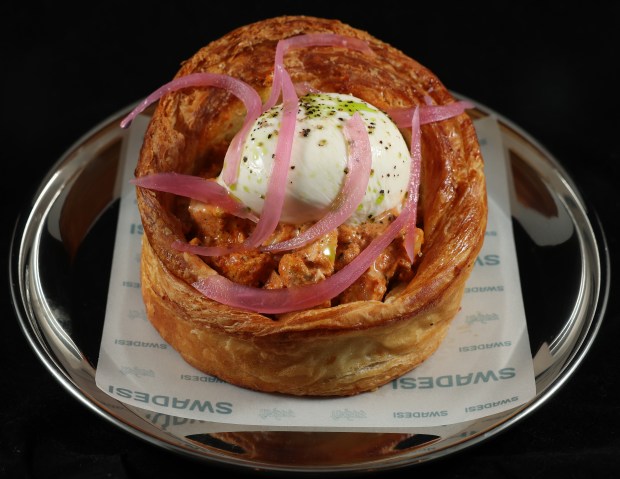
“I want to re-create the malai toast which is malai (cream) and sugar on toasted bread. With summer, gola (crushed ice dipped in flavored syrups) and tamarind-based drinks would be nice,” Sarkar said while noting that customers should expect modern versions.
The cafe closes at 4 p.m. most days, but even at 3:55 p.m. there’s a line of customers waiting to place their orders. Last-minute lattes and takeaway orders are being prepared but the seated customers show no signs of leaving. The butter chicken and samosa chaat croissants I hope to order have run out, so I take home a chicken tikka toastie and breakfast sandwich instead. I have no complaints because I know I will return to Swadesi to claim my croissants another day.
Malavika Ramakrishnan is a freelance writer.


